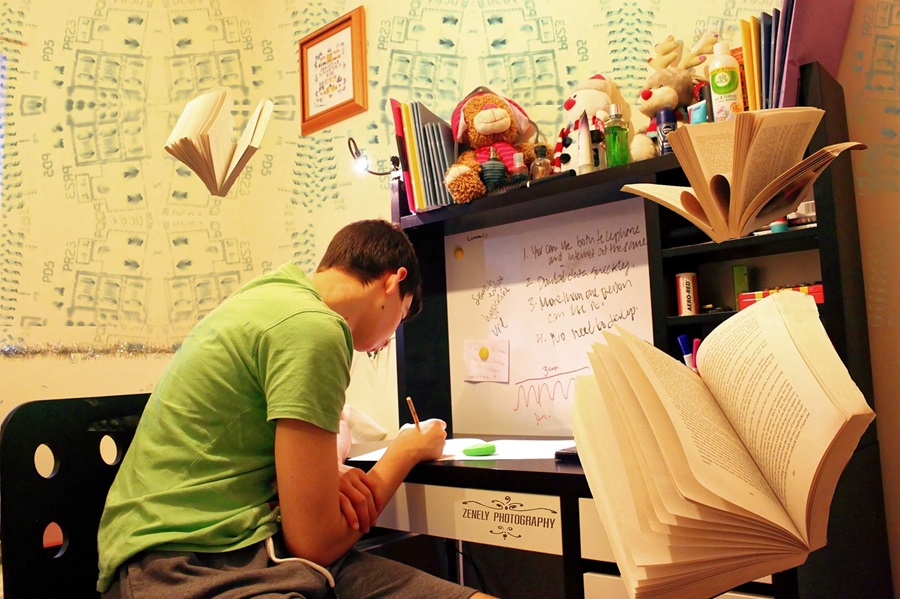- Opinion
- 3 de June de 2025
- No Comment
- 8 minutes read
To repeat or not to repeat an academic year, that is (not) the question

To repeat or not to repeat an academic year, that is (not) the question


Repeating a year is a recurring topic, one that invariably resurfaces at the end of each academic year, coinciding with final assessments. It is the bête noire of pedagogical orthodoxy; its mere mention is anathema. The mere act of raising it as a hypothetical is enough to be summarily cast into the outer darkness, labelled a sadist who delights in failing pupils and ruining both their present and future lives.
The reason for such animosity is all the more surprising when we consider that it is not even a central concept within pedagogical movements. In truth, it is not contemplated at all. Be that as it may, it does not occupy the same status of other pedagogical touchstones such as project-based learning, competency-based education, working by areas, restorative justice sessions, inclusive schooling, student-centred approaches, flipped classrooms, discovery and collaborative learning, qualitative assessment or Universal Design for Learning—this last still lacking even a minimally intelligible definition from its own proponents. The real issue lies in the fact that repetition functions as something akin to an axiom: so self-evident and foundational that it is assumed without the need for articulation. Indeed, it often feels as though the entire constellation of pedagogical concepts exists merely to ensure it never occurs.
For while year repetition is absent from the theoretical framework, it is nonetheless the keystone in the practical implementation of the pedagogical edifice. Merely invoking it is destabilising, for it threatens the integrity of the entire construct. Let us be clear: we are dealing with a theoretical system composed of absolutes which, by their very nature, cannot tolerate empirical or phenomenological contradiction. Yet year repetition—or the reasons which lead one even to consider it—belongs precisely to the realm of empirical facts: a student has not acquired the minimum requisite knowledge to progress to the next stage. This is an indication of something not working properly. Not necessarily in isolated cases, but certainly when the numbers become statistically significant.
It is for this reason that pedagogical orthodoxy cannot even entertain year repetition as an expository counter-concept, a negative definition derived from what something is not. Only anathema is permitted. For the very act of raising the possibility implies accepting that there may, in fact, be pupils who have not learned what they were supposed to, and to accept this is to concede that the model is incapable of moving beyond its theoretical phase. This is why it is deemed preferable for pupils to study quadratic equations without knowing what an exponent is, rather than have them repeat a year for not having learnt it in the first place.
It is therefore unsurprising that any mention of year repetition provokes such visceral exasperation among pedagogues: it is to utter the dreaded words. It simply has no place in their conceptual schema—nor can it. Were it otherwise, the entire edifice would collapse.
And yet we are still faced with a stubbornly empirical reality that poses a deeply uncomfortable question: what is to be done with a twelve-year-old pupil, in their first year of secondary school, who cannot multiply, who is unable to understand a three-line text, who spells their own name incorrectly, or who cannot memorise their mobile number? Something must be said, of course. And the problem is that, for all its remarkable capacity for swallowing contradictions, society is still not “ready” to accept that a growing and significant percentage of pupils, after ten to twelve years of schooling, may complete compulsory education in a state of near-functional illiteracy.
At that point, beyond the tired self-referential narrative, only two options remain: either admit failure, or speak the truth and reveal the hidden narrative. Acknowledging failure is inconceivable—not only because it would mean admitting to having implemented nonsense that has deceived and damaged entire generations, but also because it’s their bread and butter we’re talking about. And telling the truth is even less of an option: it would mean getting to the heart of the matter and laying bare the marked cards that have been in play all along. To speak plainly: what is being implemented is a model of social engineering that does not regard school as a place for the transmission of knowledge—at least not for large segments of the population—and in this, it is proving remarkably successful. Neither admission is publishable, that much is clear.
But as long as there remains within the educational system even the faintest vestige of curricular structure preserving a minimum of positive content—however pared down they may be—there will still be scope for comparison and quantitative assessment, even if external. And anyone will be able to grasp that a pupil who does not understand what an exponent is will struggle, regardless of effort or attention, to comprehend logarithmic functions. In short, automatic promotion is tantamount to abandoning the pupil to their fate.
In an interview with this magazine, cognitive psychologist Paul Kirschner remarked that the last great educational revolution was the invention of the blackboard: “It made it possible for a teacher to instruct thirty students at once, rather than one-to-one. That was a revolution. And before that, the printing press was a revolution, which allowed texts to reach not only the elite, but all students”.
Teaching thirty students at once. This is precisely what becomes impossible when one is expected to teach four or five different things simultaneously. That alone should suffice to justify the rationale behind year repetition: offering a second chance to those who did not benefit from the first. By contrast, automatic promotion—or the blanket pass—is an absurdity, a contradictio in terminis.
Yes, that should suffice, assuming we still hold that the primary function of school is the transmission of knowledge, that teaching exists for the sake of learning. But this is no longer the case. And because it cannot be openly stated, nor can failure be acknowledged—since for them it does not constitute failure, and to admit it would bring the entire project to a halt—they follow the middle path: to dilute what remains of knowledge into whichever pedagogical key concepts are currently in vogue. And also, to rename them constantly—after all, they are contentless, which leaves ample room for manoeuvre. This generates the impression that the issue is being taken seriously and that something is being done—when in fact, it is not. Or rather: the same old course is being relentlessly pursued.
And above all, absolutely no talk of year repetition. Heaven forbid they might actually learn something. After all, if knowledge no longer matters—since it is already “out there” on the internet—then really, what does it matter?
Source: educational EVIDENCE
Rights: Creative Commons

